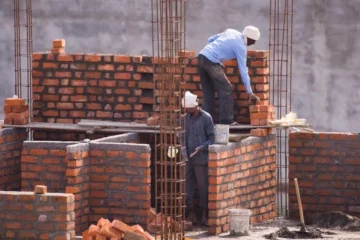A simple Google search on real estate investment locations will throw up hundreds of results. Finding genuine online advice – the kind that can lead you to a truly lucrative real estate investment decision – is like finding the proverbial needle in the haystack. The internet’s usefulness as a tool to guide your property investment decisions depends upon the individual’s capacity to read between the lines of a mammoth amount of information which may lead to house one is looking for. Year 2017 should be a year for residential real estate investment, as the government is ensuring low interest rates and a slew of incentives via schemes such as the Prime Minister’s Awas Yojana (PMAY). So, interest in and appetite for real estate investment is back in force – but where should one invest? After all, successful real estate investment is proverbially driven by ‘location, location, location.’ When you are trying to identify the right location to invest in, you are obviously ready to put up a lot of saved or leveraged capital. This is no time to rely on sponsored advice and blanket generalizations. What must come into play here is some basic knowledge of what makes the real estate market tick, and more specifically what drives demand in any location. The viability of a location is what will result in the hoped-for returns on investment. So, how does real estate location viability actually work? From a residential property investment perspective, every city – especially if it is a tier 1 city – has its hot investment corridors, and other micro- markets which are simply not working currently. Some of the important real estate drivers to look for are employment generation, infrastructure creation and historic price growth. Mumbai, being the country’s financial capital, has been attracting massive investments over the years despite its astronomically high ticket sizes. Bangalore has become India’s prominent Information technology capital and been attracting consummate investments. However, Pune has begun stealing Bangalore’s thunder as a preferred infotech destination, owing to: • Its better real estate affordability • A global reputation for business process outsourcing (BPO) services, and • A massive wealth of trained workforce. The third factor is a very important one, and plays a big role in the city’s viability as a real estate investment destination. Pune – the veritable ‘Oxford of the East’ – has numerous high-quality educational institutes which regularly churn out graduates who are directly absorbed not only into the city’s IT firms but also into its manufacturing belt and services sector. This directly translates into housing demand across a broad budget band, and in various locations of the city. All such cities have micro-markets which are suitable for either commercial or residential investment, and others that are probably avoidable right now. Because of the amount of business Mumbai, Bangalore and Pune generate – and the fact that they are in the cross-sights of many large commercial players – these cities are excellent choices for commercial space investments as long as: • One picks one’s location and property size wisely • Achieves a reasonable entry point in terms of ticket size. Commercial real estate investment calls for larger capital and longer investment horizons, and ROI is generally derived from rental income. Areas which are close to relatively affordable residential catchments or at least provide good connectivity to them should be favoured. When it comes to residential real estate investment, it pays to remember that speculative investments may have played a role in escalating prices beyond affordability in some areas. Several factors have now combined to drive out speculators from most Indian cities, and price corrections have occurred. If the prices have bottomed out or the location is still in growth mode, it is a good time to invest in it. One should look for factors like proximity to workplace hubs, infrastructure availability – especially in terms of connectivity and public transport – and a decent saturation of social infrastructure such as shopping outlets, healthcare and schools.
[Source:-Money controll]



